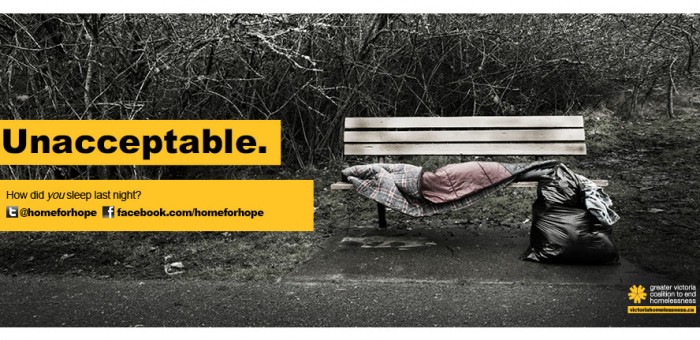When will government increase the $375 shelter allowance for income assistance?
May 30, 2018 By Andrew Weaver Comments are Off Affordability, Community Blog, Housing, Issues Blog, Poverty and Homelessness, Social Development
Today in the Legislature I rose during question period to ask the Minister of Social Development and Poverty Reduction why the government had yet to increase the $375 shelter allowance for income assistance. This rate hasn’t increased in a decade yet housing costs have risen dramatically.
Below I reproduce the video and text of our exchange.
Video of Exchange
Question
A. Weaver: In September, government raised social assistance rates by $100 per month. Not only, of course, do I support the move, but I also commend government for implementing this increase. Rates had been frozen for a decade, leaving people worse off year after year, as their buying power eroded with inflation and the affordability crisis exploded.
Nevertheless, while support payments have gone up, the shelter allowances have remained the same, at only $375 a month. This is far, far below what it actually costs to find shelter.
For example, the organization Raise the Rates found that in Vancouver, even a single-room-occupancy hotel, known as an SRO — the cheapest form of housing available — cost $548 a month. And a number of advocates and journalists have documented the appalling and unsafe living conditions that people are forced to endure in many SROs in Vancouver.
My question to the Minister of Social Development and Poverty Reduction is this: do you agree that $375 does not come close to reflecting the true cost of finding shelter in B.C., let alone shelter that is safe and secure?
Answer
Hon. S. Simpson: I thank the Leader of the Third Party, though I did lose the bet on getting a question-free session.
I agree with the Leader of the Third Party. Persons on income assistance, persons with disabilities and hundreds of thousands of other people who are living vulnerable and living poor are struggling immensely in this province today. I’m proud of the $100 increase that we put in place, the first increase in over a decade for people on income assistance.
As I said, there are significant numbers of working poor in this province who are struggling as well, and I’m excited that at the end of this week, we’re going to have a $1.30 increase in the minimum wage, the first step on the way to a $15.20 minimum wage.
On the issue of housing, the member is correct: it is challenging, as we move forward, but we have many steps that we’re taking. I’m excited about the biggest investment in housing in the history of British Columbia in the February budget. I’m excited about the increases around rental assistance programs and SAFER grants. I’m really excited about the 2,000 modular units that are out there being built today, that are being occupied today, that are helping the most vulnerable people in the province, people living homeless, and giving them a place to live. That’s progress, and that’s leadership.
The last thing I would say is: we’ll bring in the poverty reduction plan, and yes, we’re going to deal with housing.
Supplementary Question
A. Weaver: There certainly was a lot of pent-up answer waiting for a question there.
A substantial gap remains between social assistance rates and what is required to maintain a dignified standard of living. That’s why during the election the B.C. Greens committed to transitioning people to livable incomes, starting with an increase in social assistance rates by 50 percent above 2017 levels by 2020.
The previous critic on this file said last year: “Every year I ask the minister how on earth they come up with $375 as the shelter allowance for income assistance, because there’s nowhere in B.C. that’s available for $375.” I would agree with her, but unfortunately, this remains true today, and the average rent of a bachelor apartment in Vancouver is over $1,000 a month.
My question, again, to the Minister of Social Development and Poverty Reduction is this: will you increase the shelter allowance as part of the forthcoming poverty reduction program and strategy?
Answer
Hon. S. Simpson: We have 557,000 people living in poverty in this province. We’ve had the highest rates of poverty for over a decade and a half, pretty much every year, and certainly the highest rates around child poverty.
We have challenges. We need to deal with the affordability questions that the member’s talking about. We need to create opportunities for people to break the cycle of poverty. We need to deal with the issues of social isolation and social inclusion for people struggling in poverty, whether they be the 100,000 children living in poverty, the Indigenous and the disabled who are living in poverty.
We’re going to do that. We’re going to bring legislation this fall that will legislate the poverty reduction plan, and British Columbia will no longer be the only province in this country without a poverty plan. We will end that this fall. We will bring the plan shortly after, and we will address those issues of improving the lives of people in this province, including on the housing issue.
Comments are closed.
Latest Posts
Recent Comments
- Adeola on The Paris Agreement is in trouble: UNFCCC needs to ratchet up their climate efforts
- rory murphy on The Paris Agreement is in trouble: UNFCCC needs to ratchet up their climate efforts
- Andrew Weaver on How can BC’s environmental organizations be more effective?
- Andrew Weaver on How can BC’s environmental organizations be more effective?
- Vince Fiorito on How can BC’s environmental organizations be more effective?




